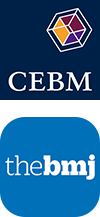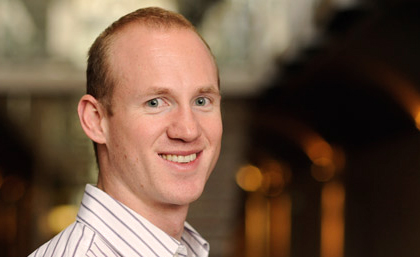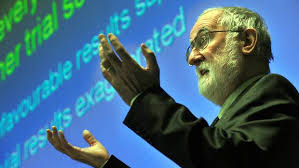By Peter J Gill
Evidence Live 2015 was a resounding success. Delegates and speakers from around the world descended on Oxford for two days of provocative keynotes, engaging workshops, networking events and cutting edge research. If you missed the conference, or feel like reminiscing, you can watch highlights from the conference online.
If you enjoyed Evidence Live 2015, you better mark June 22-24, 2016 on your calendar. Evidence Live 2016 is turning out to be a cracking event. Why? Well for several reasons. First, we added one extra day to the programme to allow more time to speakers, abstracts, plenaries and networking. Second, we allocated programme time for workshops and are inviting collaborators, innovators and researchers to submit workshops. Third, we anchored the conference around five main themes that address the cutting edge issues in EBM and healthcare. Lastly, we have a world-renowned line-up of speakers (see below).
This year there will be five main overarching themes, spread out over 3-days, which are guaranteed to stimulate debate, challenge paradigms, and leave delegates with much to think about. The themes, along with the keynote speakers are:
Improving the Quality of Research Evidence
There are many problems with the “E” in EBM, including biases that distort the design, execution, analysis and interpretation of research. Is it time for a paradigm shift? This plenary session, chaired by Fiona Godlee, editor-in-chief of the BMJ, features:
- Ivan Oransky, co-founder of Retraction Watch, and vice president and global editorial director of MedPage Today
- Hilda Bastian, editor at PubMed Health and PubMed Commons, and founding member of the Cochrane Collaboration
- John Ioannidis, C.F. Rehnborg Chair in Disease Prevention at Stanford University, and Professor of Medicine, and of Health Research and Policy, and Director of the Stanford Prevention Research Center at the School of Medicine
Transforming the Communication of Evidence for Better Health
The integration of evidence with patient values is crucial to improving and informing the public, the media and policy makers to make better healthcare choices. This plenary session, chaired by Ben Goldacre, Senior Clinical Research Fellow, Centre for Evidence-Based Medicine, features:
- David Spiegelhalter, Winton Professor of the Public Understanding of Risk in the Statistical Laboratory at the University of Cambridge
- Julia Belluz, National Magazine Award-winning journalist, and health reporter for Vox.com
- Victor Montori, Professor of Medicine at the Mayo Clinic in Rochester, Minnesota, USA
Disentangling the Problems of Too Much and Too Little Medicine
Problems with overdiagnosis and too much medicine pervade healthcare. However, problems also persist with ineffective uptake of many evidence-based interventions. How we disentangle the problems of too much and too little medicine is important for the long-term delivery of sustainable and affordable healthcare. The first session on this theme will be chaired by Carl Heneghan, Director of the Centre for Evidence-Based Medicine, and includes three spectacular keynotes:
- Paul Glasziou, Professor of Evidence-Based Medicine at Bond University, and former Director of the Centre for Evidence-Based Medicine
- Emily Sena, Postdoctoral Research Fellow at the University of Edinburgh
- Prof. Rustam Al-Shahi Salman, MRC Senior Clinical Fellow at the University of Edinburgh, and an honorary consultant neurologist in NHS Lothian
The second session on this theme will be chaired by Howard Bauchner, editor-in-chief of the Journal of the American Medical Association (JAMA), is sure to provoke debate with the following speakers:
- Alan Schwarz, Pulitzer Prize-nominated National Correspondent at The New York Times
- Peter Gotzsche, Director of The Nordic Cochrane Centre, and co-founder of the Cochrane collaboration.
- Sandra Vernero, co-founder and general secretary of Slow Medicine
Translating Evidence into Better Quality Health Services
Commissioning health services based on evidence remains a priority for affordable health-care that does not waste unnecessary resources. This plenary session, chaired by Fiona Godlee), editor-in-chief of the BMJ, features:
- David Tovey, editor-in-chief of the Cochrane Library
- Regina Kunz, Chief Physician at the Academy of Swiss Insurance Medicine, University Hospital Basel
- Catherine Marshall, Independent Guideline Adviser and Health Sector consultant, and inaugural Chief Executive of the New Zealand Guidelines Group
Training the Next Generation of Leaders in Applied Evidence
The final theme will reflect the future of Evidence-Based Medicine. It is critical to support the next generation of teachers, developers and leaders of evidence-based health care in disseminating the true values of evidence-based medicine. Several internationally renowned speakers are keen to suppport this theme in particular, so watch this space for more details!
Beyond the incredible keynotes, there will also be plenty of workshops, fringe events and research presentations. Submit your workshop idea by November 30, 2015 and submit your oral or poster abstract by January 30, 2016 to one of the five main themes.
Register online before Evidence Live 2016 sells out. Like us on Facebook and tweet to us @EvidenceLive with your thoughts.
Come to the conference, right here in the home of evidence-based medicine at the University of Oxford, June 22-24, 2016. Whatever your thoughts on this subject, we guarantee a provocative discussion of the evidence and, most importantly, about what’s best for patients.
This blog was written by Peter Gill, member of the Evidence Live 2016 Steering Committee, paediatric resident at the Hospital for Sick Children at the University of Toronto and an Honorary Fellow at the Centre for Evidence-Based Medicine.




